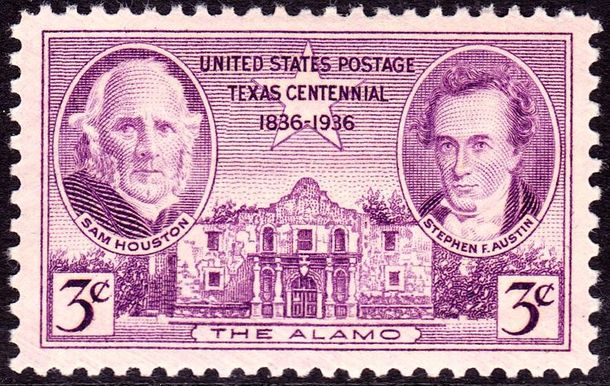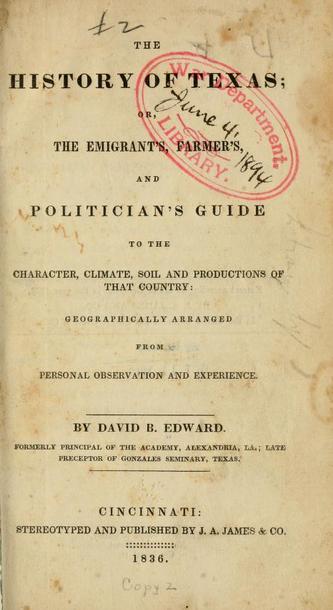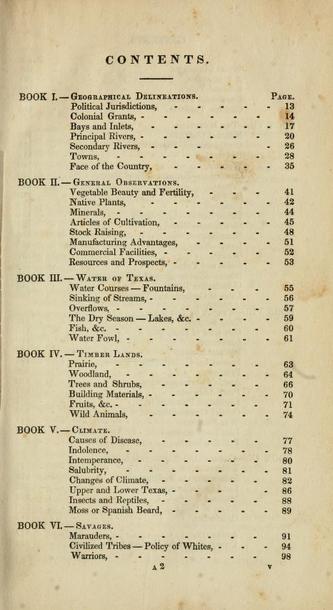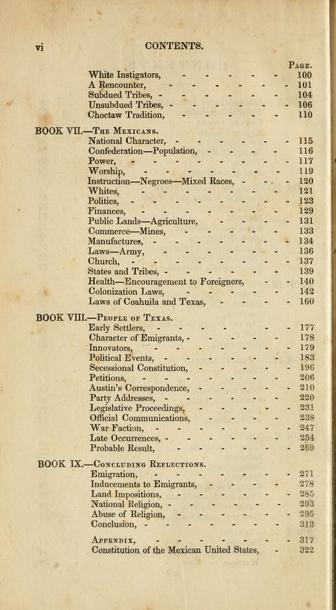日本的霊性につきて (2) 霊性の意義 (鈴木大拙) "On Japanese Spirituality" by Suzuki Daisetsu [魂と霊 Soul and Spirit]
承前―〔日本的霊性につきて (1) 「精神」の字義 (鈴木大拙) "On Japanese Spirituality" by Suzuki Daisetsu〕
えーと、あれこれ言わずに写経的作業を続けたいと念じております。日本人の大拙が「霊」ということを20世紀半ばに強く言うときに、伝記的には大拙が一時期いれあげていたエマニュエル・スウェデンボルグとの関係とかいいたがる人(日本人)がいるのはわかるけれど、日本には日本なりの「霊」学の伝統もあっただろうな、と思ったりもします(しばしば誤解される「古神道」の一霊四魂が、教説はともかく古神道自体は古くもなんともなくて新しいものであるというのは西洋のオカルトがしばしば「伝統」を唱導して「古来」を訴えるのと同様であるとはいえ、霊と魂は、少なくとも西洋のpneuma/psyche (ギリシア語)、spiritus/anima (ラテン語)、spirit/soul (英語)の歴史的にはしばしば混同を引き起こした対語と類推的には存在してきたのでしょうから)。
それでも、自我と自然とか精神と物質とか霊と肉とか、binary に二分・二元化するヨーロッパの伝統、その伝統に掉さすようで逆らったエマソンとか、ロマン主義を考えるうえでも、つぎの節は啓発的であると思われ(エマソンら、欧米の対抗文化的な思想伝統を「宗教という名で呼ばれない宗教」と呼んだのはセオドア・ローザクでした)。
2 霊性の意義
この見立てにたいした誤りがないとすれば、これから霊性とは何を言うのであるかを説き得べき順序にはいったと言ってよかろう。霊性という文字はあまり使われていないようだが、これには精神とか、また普通に言う「心」の中に包みきれないものを含ませたいというのが、予の希望なのである。
精神または心を物(物質)に対峙させた考えの中では、精神を物質に入れ、物質を精神に入れることができない。精神と物質との奥に、いま一つ何かを見なければならぬのである。二つのものが対峙する限り、矛盾・闘争・相克・相殺などいうことは免れない、それでは人間はどうしても生きていくわけにいかない。なにか二つのものを包んで、二つのものがひっきょうずるに二つでなくて一つであり、また一つであってそのまま二つであるということを見るものがなくてはならぬ。これが霊性である。今までの二元的世界が、相克し相殺しないで、互譲し交歓し相即相入するようになるのは、人間霊性の覚醒にまつよりほかないのである。いわば精神と物質の世界の裏にいま一つの世界が開けて、前者と後者とが、互いに矛盾しながらしかも映発するようにならねばならぬのである。これは霊性的直覚または自覚によりて可能となる。
霊性を宗教意識と言ってよい。ただ宗教と言うと、普通一般には誤解を生じ易いのである。日本人は宗教に対してあまり深い了解をもっていないようで、或いは宗教を迷信の又の名のように考えたり、或いは宗教でもなんでもないものを宗教的信仰で裏付けようとしたりしている。それで宗教意識と言わずに霊性と言うのである。が、がんらい宗教なるものは、それに対する意識の喚起せられざる限り、なんだかわからぬものなのである。これは何事についても、然か言われうると思われるが、一般意識上の事象なら、なんとかいくらかの推測か想像か同情かが許されよう。ただ宗教については、どうしても霊性というべきはたらきが〔はたらきに傍点〕出てこないといけないのである、即ち霊性に目覚めることによって初めて宗教がわかる。
霊性と言っても、特別なはたらき〔はたらきに傍点〕をする力か何かがあるわけではないが、それは普通に精神と言っているはたらき〔はたらきに傍点〕と違うものなのである。精神には倫理性があるが、霊性はそれを超越している。超越は否定の義ではない。精神は分別意識を基礎としているが、霊性は無分別智である。これも分別性を没却了して、それから出てくるという意ではない。精神は、必ずしも思想や論理を媒介としないで、意志と直覚とで邁進することもあるが、そうしてこの点で霊性に似通うところもあるが、しかしながら霊性の直覚力は、精神のよりも高次元〔ちょっと個人的に気になるコトバ〕のものであると言ってよい。それから精神の意志力は、霊性に裏付けられていることによって初めて自我を超越したものになる。いわゆる精神力なるものだけでは、その中に不純なもの、即ち自我――いろいろの形態をとる自我――の残滓がある。これがある限り、「以和為貴〔和をもって貴しとなす〕」の真義に徹し能わぬのである。
『日本的霊性』 緒言 一 日本的霊性につきて・・・・・・1 「精神」の字義・・・・・ 2 霊性の意義・・・・・・ 3 霊性と文化の発展・・・・・・ 4 霊性と宗教意識・・・・・・ 5 日本的霊性・・・・・・ 6 禅・・・・・・ 7 浄土系思想・・・・・・ 8 禅と浄土系――直接性
ポーが書評した本 (4) 『テキサスの歴史』 (1836) Books Reviewed by Poe (4): _The History of Texas_ by David E. Edward [ポーの書評 Poe's Book Reviews]
ポーは文学書だけじゃなくていろんな本の書評を書きました。
The History of Texas: or the Emigrant's, Farmer's, and Politician's Guide to the Character, Climate, Soil, and Productions of that Country; Geographically Arranged from Personal Observation and Experience. By David B. Edward, formerly Principal of the Academy, Alexandria, Lousiana; Late Preceptor of Gonzales Seminary, Texas. Cincinnati: J. A. James & Co.[, 1836]
デイヴィッド・B・エドワード著 『テキサスの歴史――または、この国〔地域〕 (Country) の特性、気候、土壌、そして産物についての、移民の、農民の、そして政治家の案内書――個人的観察と体験により地理学的に構成』 シンシナチ:J・A・ジェイムズ, 1836. 336pp.
E-text @Internet Archive: The Library of Congress; Sloan Foundation <http://www.archive.org/stream/historyoftexas01edwa#page/n5/mode/2up>
『サザン・リテラリー・メッセンジャー』誌の1836年8月号に掲載された書評。ポウはこの本を「有用な珍本 useful odditties」に入ると冒頭で位置づけ、「テキサスに関してわずかの量しかない我々の精確な知識に対して貴重な付与となるもの」と言っています。
テキサスがアメリカ合衆国の28番目の州になるのは1845年12月29日のことです。1836年までメキシコの一部(その前は1821年にメキシコが独立するまではスペイン領)であったのが、独立を宣言して共和国 republic になったのでした。
日付を並べると、第二次アナウアク騒擾事件1835年6月――テキサス独立戦争開始 1835年10月1or2日――「アラモの戦い」1836年2月23日~3月6日――独立宣言1836年3月2日――「サンジャシントの戦い」=テキサス独立戦争(テキサス革命)の終結1836年4月21日――ベラスコ条約1836年5月14日――
独立を宣言したのは、アメリカからの入植者たちです(初代大統領は独立戦争において最高司令官であったサミュエル・ヒューストン)。入植を父の代から数十年にわたってすすめ「テキサスの父」と呼ばれるのがスティーヴン・オースティン (1793-1836) です。

アラモの戦い100周年記念切手(1936) image via Wikipedia, Wikimedia Commons: from "Stephen Austin" <http://en.wikipedia.org/wiki/Stephen_F._Austin>
どちらもポーと同じヴァージニア出身でした。オースティンはフリーメーソンで、テキサス独立アメリカ陰謀説とつながっていたりします。
ポーが書評のなかで使っている "savages" (野蛮人)ということばは原書にあるのをそのまま引いているのですけど (Book VI―SAVAGES)、もっぱらインディアンのことかと思ったら、白人の扇動者とか掠奪者も入っている。
この本は、いつごろ書かれたのか、ちゃんと読んでみないとわかりませんけれど、付録にはメキシコ合衆国の憲法が載っていますので、独立前の様子ということになるのでしょうか。ともあれ、ポーの書評が載った1836年夏の時点で、話題の地域であったのは確かです。
南部・黒人問題について書いておくと、メキシコ政府下では黒人奴隷は解放されていたのが、テキサス独立によって奴隷制が復活します。また、アメリカとメキシコとの対立はその後さらにカリフォルニアやニュー・メキシコをめぐって米墨戦争 (1846-48) へ突入し、その後のゴールド・ラッシュに伴う白人・黒人問題、自由州・奴隷州の論争を経て、米国内では南北戦争による奴隷制の決着という未曾有の「内戦 Civil War」へとつながっていくのでした。
HISTORY OF TEXAS.
The History of Texas: or the Emigrant's, Farmer's, and Politician's Guide to the Character, Climate, Soil, and Productions of that Country; Geographically Arranged from Personal Observation and Experience. By David B. Edward, formerly Principal of the Academy, Alexandria, Lousiana; Late Preceptor of Gonzales Seminary, Texas. Cincinnati: J. A. James & Co.
This should be classed among useful oddities. Its style is somewhat over-abundant―but we believe the book a valuable addition to our very small amount of accurate knowledge in regard to Texas. The author, who is one of the Society of Friends 〔Quaker の公式名称〕, assures us that he has no lands in Texas to sell, although he has lived three years in the country, and that, too, on the frontiers―that he made one of a party of four who explored the province in 1830, from side to side, and from settlement to settlement, during the space of six months more in examining the improvements made throughout every locality, "in order that none should be able to detect a falsehood, or prove a material error which could either mislead, or seriously injure those who may put confidence in this work." For ourselves we are inclined to place great faith in the statements of Mr. Edward, and regard his book with a most favorable eye. It is an octavo of 336 pages, embracing, in detail, highly interesting accounts of the People, the Geographical Features, the Climate, the Savages, the Timber, the Water, &c. of Texas. Much information in regard to Mexico, is included in the body of the work, and, in an Appendix, we have a copy of the Mexican Constitution. We give, by way of extract, a flattering little picture of Texian comfort and abundance.
The people en masse can have a living, and that plentifully too, of animal food, both of beef and pork, of venison and bear meal, besides a variety of fish and fowl, upon easier terms at present, especially the wild game, than any other people, in any other district of North America; which must continue to be the case, for one of the best reasons in the world―at least in Texas: as the wild animals decrease, the domesticated ones will increase.
And, as they have not commenced, except in a few cases (comparatively speaking) upon the border lands of the Gulf, to export corn, they have by just dropping the seed and afterwards stowing away the increase, more bread stuff than they well know sometimes what to do with, it being out of the question to feed their hogs on it, except they were to raise them on such food together, which would be a pity, while they have so much mast in the woods, and so many roots in the prairies.
And, as their milch 〔milkを出すの意味の形容詞〕 cattle increase in numbers, and that very frequently too faster than they can attend to their milking, they have more, as to family use, much more milk, than they know how to dispose of, except they are well stocked with farrow sows, or have around them pet mustang colts.
With these three main stays of a farmer's life, come, by very little more exertion than just the picking and gathering in, those condiments and relishes, which not [column 2] only garnish the table, but replenish the appetite, from a source of such plentiful variegation, as the gardens and the fields, the woods and the waters, of a Texas country!
目次






